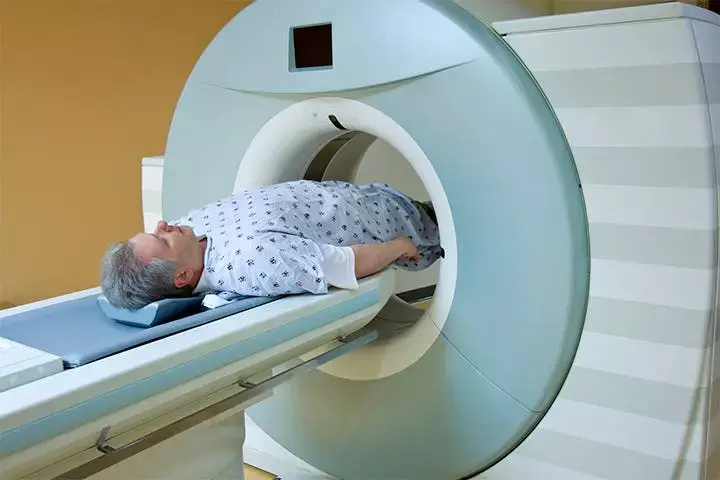- Home
- Medical news & Guidelines
- Anesthesiology
- Cardiology and CTVS
- Critical Care
- Dentistry
- Dermatology
- Diabetes and Endocrinology
- ENT
- Gastroenterology
- Medicine
- Nephrology
- Neurology
- Obstretics-Gynaecology
- Oncology
- Ophthalmology
- Orthopaedics
- Pediatrics-Neonatology
- Psychiatry
- Pulmonology
- Radiology
- Surgery
- Urology
- Laboratory Medicine
- Diet
- Nursing
- Paramedical
- Physiotherapy
- Health news
- Fact Check
- Bone Health Fact Check
- Brain Health Fact Check
- Cancer Related Fact Check
- Child Care Fact Check
- Dental and oral health fact check
- Diabetes and metabolic health fact check
- Diet and Nutrition Fact Check
- Eye and ENT Care Fact Check
- Fitness fact check
- Gut health fact check
- Heart health fact check
- Kidney health fact check
- Medical education fact check
- Men's health fact check
- Respiratory fact check
- Skin and hair care fact check
- Vaccine and Immunization fact check
- Women's health fact check
- AYUSH
- State News
- Andaman and Nicobar Islands
- Andhra Pradesh
- Arunachal Pradesh
- Assam
- Bihar
- Chandigarh
- Chattisgarh
- Dadra and Nagar Haveli
- Daman and Diu
- Delhi
- Goa
- Gujarat
- Haryana
- Himachal Pradesh
- Jammu & Kashmir
- Jharkhand
- Karnataka
- Kerala
- Ladakh
- Lakshadweep
- Madhya Pradesh
- Maharashtra
- Manipur
- Meghalaya
- Mizoram
- Nagaland
- Odisha
- Puducherry
- Punjab
- Rajasthan
- Sikkim
- Tamil Nadu
- Telangana
- Tripura
- Uttar Pradesh
- Uttrakhand
- West Bengal
- Medical Education
- Industry
MRI with PSA prevents unnecessary biopsies among patients of suspected prostate cancer

South Korea: A new study conducted by Moon Hyung Choi and colleagues shows that prebiopsy MRI was consistently helpful in preventing needless biopsy in individuals with prostate-specific antigen (PSA) levels of 20 ng/mL.
The findings of this study were published in the Academic Radiology journal.
It has long been common practice to assess the potential for prostate cancer using prostate-specific antigens. The effectiveness of PSA as a screening tool to find prostate cancer has not been shown, nevertheless. In order to predict prostate cancer in individuals with PSA 20 ng/mL, this study was done with the goal of evaluating the diagnostic abilities of prostate-specific antigen and PSA using prostate magnetic resonance imaging (MRI).
For this study, the PSA test and pre-biopsy MRI were used to identify patients with prostate cancer suspicion (n = 881). Prostate cancer was detected using the findings of a prostate biopsy or two years' worth of clinical data. It was determined how well the PSA, MRI, and PSA plus MRI (referred to as the protocol) performed as diagnostic tools. In patient subgroups with certain ranges of PSA levels, the positive predictive value (PPV) and negative predictive value (NPV) of the MRI were computed.
The key findings of this study were:
1. In 220 and 162 individuals, respectively, diagnoses of prostate cancer and CSC were made.
2. Compared to PSA 4 ng/mL alone, MRI might significantly increase specificity and PPV (0.833 and 0.567) for identifying CSC (0.248 and 0.0219).
3. Despite the protocol's sensitivity (0.679) being less than PSA's (0.938), it had a similar NPV to PSA (0.929 vs. 0.924).
4. The procedure consistently showed that PPV and NVP outperformed PSA only in individuals outside of the grey zone of PSA as well as in those with higher PSA.
Reference:
Choi, M. H., Ha, U.-S., Park, Y.-H., Hong, S.-H., Lee, J. Y., Lee, Y. J., Lee, W., & Jung, S. (2022). Combined MRI and PSA Strategy Improves Biopsy Decisions Compared with PSA Only: Longitudinal Observations of a Cohort of Patients with a PSA Level Less Than 20 ng/mL. In Academic Radiology. Elsevier BV. https://doi.org/10.1016/j.acra.2022.07.020
Neuroscience Masters graduate
Jacinthlyn Sylvia, a Neuroscience Master's graduate from Chennai has worked extensively in deciphering the neurobiology of cognition and motor control in aging. She also has spread-out exposure to Neurosurgery from her Bachelor’s. She is currently involved in active Neuro-Oncology research. She is an upcoming neuroscientist with a fiery passion for writing. Her news cover at Medical Dialogues feature recent discoveries and updates from the healthcare and biomedical research fields. She can be reached at editorial@medicaldialogues.in
Dr Kamal Kant Kohli-MBBS, DTCD- a chest specialist with more than 30 years of practice and a flair for writing clinical articles, Dr Kamal Kant Kohli joined Medical Dialogues as a Chief Editor of Medical News. Besides writing articles, as an editor, he proofreads and verifies all the medical content published on Medical Dialogues including those coming from journals, studies,medical conferences,guidelines etc. Email: drkohli@medicaldialogues.in. Contact no. 011-43720751


